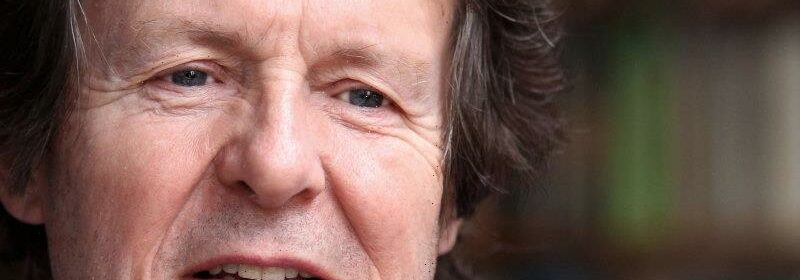Acclaimed playwright David Hare opens up on his next big challenge

What David Hare wants to write about at the moment is pretty simple: the fact that two billion of us are doing well in this world and six billion are not.
Often referred to as our greatest living playwright, the 75-year-old Englishman has written 39 plays, many about current events including conflict in the Middle East, media moguls and COVID-19. He received two Academy Award nominations for best-adapted screenplay for writing The Hours in 2002 and The Reader in 2008.
Sir David Hare is only now turning his attention to writing about men.
Speaking ahead of a talk in Melbourne this week, Hare says the huge gap between the haves and the have-nots is the issue of the 21st century. “Global capitalism is not currently delivering an equal way of living,” he says. “So we have this massive disparity between the rich and the poor, which gets greater all the time and makes societies demonstrably unhappier. That, of course, is what I would write about, but god knows how you write about it.”
To his mind, the best writers express something that needs to be said but which has not yet been articulated. What they should do – and what he aims to do – is find the gaps and challenge our preoccupations as a society. All the great playwrights – Shakespeare, Ibsen, Chekhov and Moliere – were way ahead of what society was thinking.
Hare argues a lot of theatre produced today is pious. “I’ve never written the kind of play in which people are told what they already believe,” he says. “I’ve never written ‘rally around the flag’. I would rather not write than write stuff which confirms people in what they already believe.”
When Cate Blanchett starred in his play Plenty in London in the late 1990s, in the part made famous by Meryl Streep in the 1985 film adaptation, some audience members couldn’t cope. “When the scene came up in which [her character] asks a young man to impregnate her and to have a relationship which is purely about taking his sperm and making a child with absolutely no emotional context whatsoever, there were still men who walked out angrily.”
His play Stuff Happens, about the Iraq war, staged in 2005 is another example of Hare’s willingness to reject the status quo. The title inspired by Donald Rumsfeld’s comments about looting in Baghdad. “Everyone now claims to have been against the Iraq invasion … even the Murdoch press,” he says, adding that that was “not quite what they said at the time”.
“But when that play was first presented … my God, it caused a lot of trouble. It was violently denounced and now it’s accepted. But it seemed to me that was the moment to just put down a record and say, This is what actually happened.”
David Hare and actor Bill Nighy in 2011.Credit:Venturellu/WireImage
Hare says writers “don’t get” life. “And because we don’t get it, we are desperate to understand it … that’s probably what all playwrights have in common, a certain curiosity about other people … you’ve got to be interested, you’ve got to want to know.”
Good plays may be timeless, Hare says, but they absolutely depend on the context in which they’re presented. “If you lived in a communist country during a certain time, then a performance of Hamlet was the most revolutionary thing somebody could do. If you put Hamlet on, the audience understood that killing the king and avenging your father … was effectively a protest against the regime. Hamlet was electric in Russia, or in Romania, or in Bulgaria. Whereas when you’re going to see Hamlet in Stratford, you just say, ‘oh, Mark Rylance is very good, but he’s not as good as David Tennant’.”
Originally drawn to directing, he started to write and discovered he had a gift for dialogue. That evolved into a lifelong fascination with the formal problems of writing. “I’ve been trying to work out how the hell you do it. And the annoying thing of being my age, which is a feeling a lot of people have, is I’m just beginning to get the hang of it.”
Sir David Hare is in conversation with Don Watson at the State Library on March 7.
Find out the next TV, streaming series and movies to add to your must-sees. Get The Watchlist delivered every Thursday.
Most Viewed in Culture
From our partners
Source: Read Full Article

